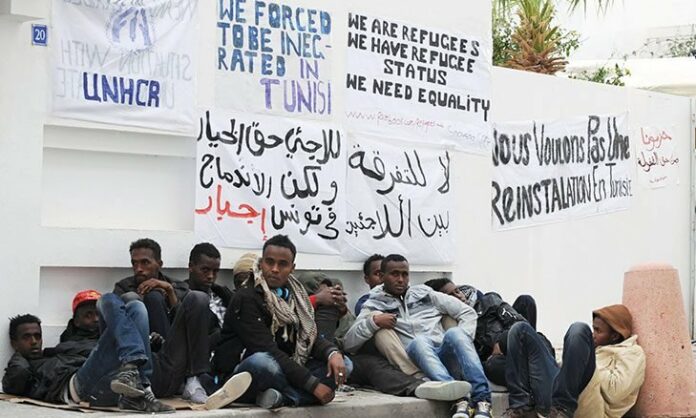
May 14, 2021
In the main streets of Tunisia, in recent years, the phenomenon of Syrian asylum seekers has appeared so remarkably that you often see a married couple and their children demanding aid, holding up their Syrian passports or a paper that says “A Syrian family asks for help.”
This is what prompts us to ask about the number of Syrian asylum seekers in Tunisia, how they live, and the difficulties they face.
Increasing Numbers
Figures from the Office of the United Nations High Commissioner for Refugees in Tunisia indicate that the total number of refugees in 2016 reached about 650 legal Syrian refugees in Tunisia. In 2018, 887 refugees entered Tunisia, 75 percent of whom were of Syrian nationality, according to the same source.
According to 2020 statistics, Syrians ranked second in the number of asylum seekers in Tunisia with 2001 cases, after Ivorians (2519).
However, these numbers remain unrealistic, given that thousands of Syrians entered Tunisia after 2011, and the statistics only speak about those registered with the United Nations.
The head of the Tunisian Refugee Council, Abd al-Razzaq al-Karimi, told JDD that part of these migrants came to Tunisia by land via Algeria, along with others who had been disrupted by “irregular” migration boats in the Mediterranean or because Tunisian naval units had taken notice of them.
al-Karimi added that it is easier for Syrians to obtain asylum than other nationalities, given the difficult humanitarian conditions in their country. They are given a “refugee card”, but on a temporary basis, until their files are decided upon. This document enables them to access health services and some other needs, with funding from UNHCR (The UN Refugee Agency).
Diplomacy and Administrative Complexities
A study prepared by the Sigma Conseil Foundation to explore opinions in partnership with the High Commissioner for Refugees, the International Organization for Migration and the Tunisian Red Crescent, in 2015, revealed that most Syrians entered Tunisia legally, but most of them live illegally as a result of the expiration of their residency certificates. Whereas, renewing the documents is considered impossible in the absence of diplomatic representation after relations between the two countries were cut in 2012.
Residents are forced to travel to Algeria to renew their documents in an irregular way by land, because their movement is not allowed due to the absence of identity documents, or they are forced to pay a fine of 90 dinars per day, starting from the expiration of the entry visa or the expiration of the residency certificate.











